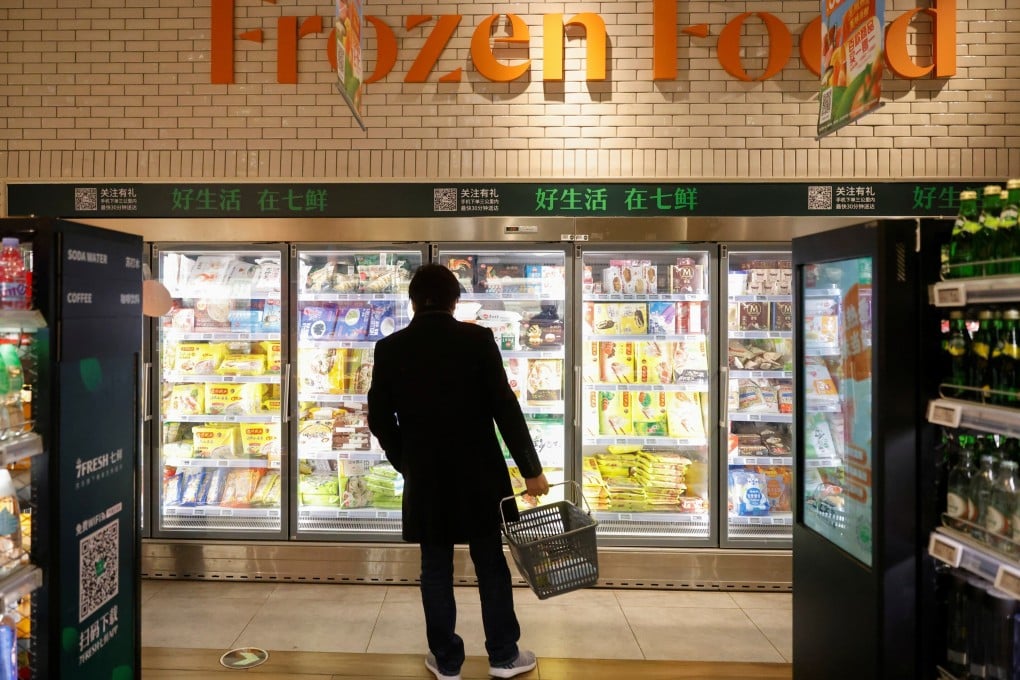China consumer inflation turned positive in December on higher food prices
- China’s official consumer price index (CPI) rose to 0.2 per cent in December from a year earlier – up from minus 0.5 per cent in November
- China’s producer price index (PPI) improved to minus 0.4 per cent in December from a year earlier, compared with minus 1.5 per cent in November

China’s headline consumer inflation recovered in December after dropping into negative territory in the previous month for the first time in 11 years, data released on Monday showed.
November’s reading was the lowest level since October 2009, when it also reached minus 0.5 per cent.
“Ahead of New Year’s Day and the Spring Festival, consumer demand increased, and [animal] feed costs also rose,” said Dong Lijuan, a senior statistician at the NBS, with higher feed costs putting upwards pressure on meat prices.
The improvement in CPI was led by food prices, which posted a rise of 1.2 per in December compared to a year earlier, a reversal from the 2.0 per cent decline in November.
The price of pork – a staple meat on Chinese dinner tables – rose 6.5 per cent in December compared to November, up from the decline of 6.5 per cent a month earlier. Compared to a year earlier, pork prices were still down 1.3 per cent in December, but this was a strong improvement from the 12.5 per cent drop in November.